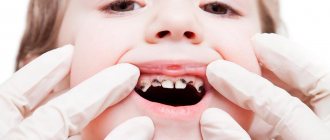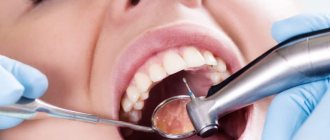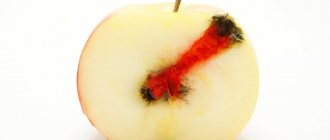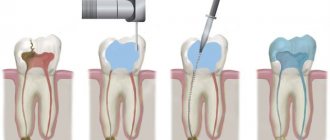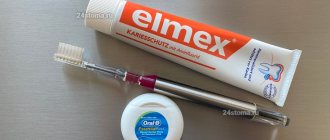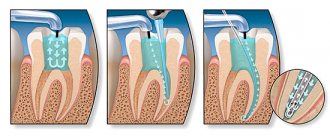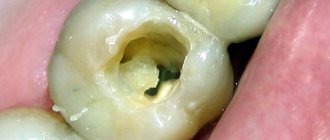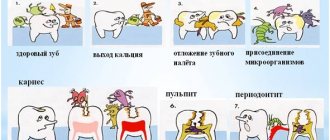What role does a proper diet play in preventing tooth decay?
A healthy, balanced diet is an important factor in the maturation and mineralization of tooth enamel, the prevention of caries and periodontal diseases.
In this article
- What role does a proper diet play in preventing tooth decay?
- How to eat properly to avoid caries?
- What foods can be dangerous for teeth?
- Drinks that increase the risk of tooth decay
- What to eat to prevent caries?
- Other caries prevention measures
The foods we eat affect:
- on the number of bacteria in the oral cavity (the more food rich in quickly digestible carbohydrates and sugars, the more microbes);
- on the amount and composition of saliva, which cleans teeth and naturally neutralizes the effect of bacteria;
- for self-cleaning of teeth and oral cavity (solid food cleanses teeth of food debris and soft plaque);
- on the level of acidity (its increase promotes the active proliferation of bacteria);
- on the general condition of the body and teeth in particular.
Thus, in order to prevent caries, it is necessary not only to maintain oral hygiene and regularly visit the dentist, but also to correct the diet and general nutrition system.
Prevention and treatment of childhood caries
Proper nutrition
Of course, the most important thing in this matter is timely and regular prevention. Preventive measures for all age groups include, first of all, proper nutrition. From the age of six months, a baby’s diet should include kefir, cottage cheese, and eventually whole milk. All products must be of high quality.
Hygiene
Another important factor is proper hygiene. From the first day of the child's life, the mother should wipe the child's gums daily with a gauze swab, removing invisible plaques of soft plaque. And with the appearance of the first tooth, baby toothpaste and a brush should appear in the house. After waking up and before going to bed, thoroughly clean your teeth from root to edge on all sides. Firstly, it is protection against caries, and secondly, this procedure helps the child develop early hygiene skills. As your child gets older, test the quality of self-brushing until you are sure that your child has mastered the skill.
Treatment of childhood caries
Treatment in the early stages is absolutely painless and consists of applying special strengthening solutions to the teeth, which do not allow caries to develop.
But if a carious cavity has formed, it will require filling, with anesthesia and medications appropriate for the child’s age.
How to eat properly to avoid caries?
To reduce the risk of dental caries, you need to adjust your diet in accordance with the following recommendations:
- Limit foods that cause caries in your diet, in particular, minimize the consumption of fast carbohydrates and sugars.
- Rinse your mouth or brush your teeth after every meal. For rinsing, you can use water or special solutions.
- You should not eat sweets between main meals, so that sugar does not remain on your teeth - a breeding ground for microbes.
- Add more solid and fibrous foods (fresh vegetables, fruits) to your diet, which will cleanse the enamel of soft plaque and remove food debris.
- Eat food at a comfortable temperature (neither hot nor cold).
- There are foods high in fluoride, calcium, phosphorus, and vitamin D that are good for teeth.
- Chew food well and for a long time, because chewing produces saliva, which has a bactericidal effect and destroys the cell walls of bacteria.
Features of caries prevention in children and pregnant women
How to prevent caries in young children? Parents should adhere to the following recommendations:
- Cariogenic microflora enters the child’s mouth with the saliva of the mother or grandmother when taking a sample from a spoon during feeding, so adults must carefully care for the oral cavity and cure existing dental diseases.
- Teeth care should begin from the moment they erupt. After eating, teeth should be wiped with damp gauze or special soft napkins (cloth fingertips) in the direction from the gum to the cutting edge of the tooth.
- If a child has a tendency to develop early caries, he should use fluoride-containing toothpastes. It is undesirable to swallow them, so parents need to supervise the process of brushing the teeth of children under the age of 7 years.
- The development of childhood caries is promoted by malnutrition. Some parents give their baby juices, sweet water and milk at night, which contributes to the damage to baby teeth by carious defects.
It is important to know. There is a strong relationship between the level of caries-causing microorganisms in a mother's saliva and the child's risk of infection.
Ways to prevent caries in pregnant women:
- preliminary sanitation of the oral cavity;
- careful dental care during pregnancy;
- if a woman suffers from bouts of vomiting, she needs to rinse her mouth after each such episode;
- To prevent caries, you can take vitamin preparations that contain vitamins B1 and B6.
What foods can be dangerous for teeth?
- Food that is too hot or too cold weakens tooth enamel and causes microcracks to appear on it, into which cariogenic microbes easily penetrate.
- Sweet foods are an ideal breeding ground for bacteria. Microbes convert the sugars contained in sweets into acids that destroy enamel and dentin, causing caries. In addition, some sweets (for example, caramel, toffee, candy bars) stick to the teeth, get stuck in hard-to-reach places and remain in the mouth for a long time, exacerbating the proliferation of microbes.
- Acidic foods. Although citrus fruits are very beneficial for our immunity, in large quantities they can be dangerous for tooth enamel due to the acid they contain. Also, due to the high acid content, store-bought sauces, ketchups, and pickled foods can be dangerous for teeth. To prevent dental caries, it is recommended to rinse your mouth with clean water immediately after eating acidic foods.
- Fruits and berries in large quantities, as modern research shows, can also increase the risk of developing caries. It turns out that modern fruits contain much more sugar than just a few decades ago. Therefore, it is recommended to eat them in moderation.
- Unpeeled seeds and nuts wear away tooth enamel and contribute to the appearance of chips on the surface of teeth, which increases the risk of developing caries.
- Alcohol, chips, and crackers contribute to a prolonged feeling of dry mouth and reduce salivation. But saliva naturally cleanses teeth of food debris and has an antimicrobial effect.
Drinks that increase the risk of tooth decay
- Sodas like Coca-Cola stain the surface of tooth enamel and destroy bone tissue in the body.
- Tea helps wash out calcium and stains teeth, while coffee also promotes the growth of bacteria in the oral cavity.
- Energy drinks destroy tooth enamel due to large amounts of acids.
- Store-bought fruit juices contain large amounts of sugar.
You don’t have to completely give up all drinks, but you need to follow safety precautions when drinking them. For example, drink juices or tea through a straw to minimize contact with teeth.
Products affecting the development of caries
Bacteria that contribute to the development of caries constantly live and multiply in the oral cavity. Bacteria feed on leftover food, which, as a result of fermentation, forms organic acid. Acid has a negative effect on tooth enamel, gradually destroying it, which leads to the formation of a carious cavity in the tooth. The development of caries is especially affected by the consumption of sugar-containing foods, as well as foods rich in carbohydrates. To a slightly lesser extent, but also contribute to the development of carious processes, lactose, fructose and glucose. In order to strengthen tooth enamel, you need not only not to abuse carbohydrates, but also to include in your diet vitamins containing fluoride and calcium, minerals, as well as foods rich in vitamin D. Fluoride. The optimal daily dose of fluoride is 2 or 3 mg. Most of it enters the human body with drinking water, but this is not always enough. Fluoride is involved in the construction of tooth enamel, as well as bone tissue, which is why it is such an important component. However, it is worth remembering that oversaturation with fluoride is just as dangerous as its lack. Calcium. This is the most important builder of bones. For an adult, the norm is 800-900 mg per day. But it is important to know that calcium is absorbed only in the presence of vitamin D. Vitamin D. The norm is 5 mcg per day. In those areas and areas where there is not enough sun, experts recommend using it additionally.
What to eat to prevent caries?
Not only limited consumption of foods that are harmful to dental health helps reduce the risk of developing caries, but also, on the contrary, the introduction of foods that are rich in beneficial microelements into the diet. Fluoride, calcium and phosphorus play a vital role in caries prevention.
Fluoride strengthens tooth enamel, prevents the proliferation of pathogenic microflora, and in childhood plays a decisive role in the proper formation of teeth. Food sources of fluoride are black and green tea, mineral water, garlic, fish, walnuts, parsley, and seafood.
Calcium is the main building material of teeth; it strengthens and restores tooth enamel, protects it from the destructive effects of acid produced by bacteria. If you want to have healthy teeth without caries, your diet should include dairy products, eggs, herbs, nuts, and green vegetables. Vitamin D is necessary for the absorption of calcium. Therefore, along with calcium-containing foods, the diet should include foods containing this vitamin: fish oil, egg yolk, cod liver, tuna, butter.
Phosphorus promotes normal tooth growth and maintains healthy enamel. Buckwheat, fish, oatmeal, beans, and red meat are rich in phosphorus.
Why is it better to prevent tooth decay than to treat it?
Affected teeth quickly break, become very painful and fall out. The more advanced the problem, the more difficult it is for dentists to deal with it. Sometimes, caries causes such serious consequences that it is very difficult to get rid of them. Treatment of caries is a complex process and therefore it is better to prevent it.
A person who protects his teeth from caries will not have to face the following problems:
- severe toothache;
- the appearance of holes in the teeth and the need to put fillings;
- almost complete destruction of the tooth and the need to build it up;
- loss of teeth and the need for implants.
You need to clearly understand the fact that even if you insert a tooth, it will no longer be as strong and durable as your own. In addition, if you put fillings, you need to eat more carefully. It’s better to take good care of your teeth right away than to try to correct the situation for a long time.
When asking the question of caries prevention, it is necessary to consider all the methods by which you can prevent the problem from occurring.
In the first place it is worth putting the moment of proper oral care:
- brushing and flossing your teeth;
- correct selection of brushes and hygiene products;
- use of additional rinses;
- the need to brush not only your teeth, but also your tongue and cheeks.
A couple of hours after brushing your teeth, bacteria begin to actively multiply in your mouth. That is why, throughout the day, after each meal, it is appropriate to use toothpicks, dental floss and special rinses.
The selection of individual oral hygiene products is of great importance. It will be difficult to choose exactly what you need on your own, but an experienced dentist will always help you solve this kind of problem. You just have to contact a specialist at the Dent Prestige clinic for help, and he will tell you what hardness of the brush to take and which toothpaste is better.
Particular attention should be paid to how exactly a person brushes his teeth. You should always apply a small amount of toothpaste to your brush and brush your teeth using circular movements. Since a toothbrush cannot reach everywhere, a person should additionally use dental floss. You need to brush your teeth twice a day and change your brush once every three months.
Other caries prevention measures
A healthy and balanced diet is of great importance in preventing the development of dental caries. However, you should not expect that giving up some foods and eating others can completely get rid of dental caries. An integrated approach is important in the fight against cariogenic bacteria and the prevention of caries. After adjusting your diet, also pay attention to the following points:
- Brush your teeth regularly with a properly selected brush and paste, use floss, dental floss or irrigators to remove food debris from hard-to-reach areas and interdental spaces.
- Visit your dentist twice a year for preventative purposes, even if you have no symptoms of caries and no signs of oral discomfort.
- When caries appears, treat it at an early stage, without delaying the process to a deep stage or pulpitis.
- Regularly visit a hygienist for professional teeth cleaning - special equipment will help remove complex plaque from the surface of the teeth, which is difficult to remove with manual brushing.
Compliance with these simple preventive measures plus nutritional correction towards a healthy and balanced diet will allow you to maintain healthy teeth for a long time and prevent the development of caries.
Nutrition as a factor in the occurrence of caries
Cariogenic bacteria that live in the oral cavity (Streptococcus mutans, Streptococcus sanguis) live off carbohydrate food residues. Microbes convert simple carbohydrates into organic acid. This process is called fermentation, or fermentation.
The acid comes into contact with the surface of the teeth, dissolving the mineral components of the enamel. Acid thins the enamel and a tooth cavity forms.
The main food for bacteria is sucrose, which is easily fermented. Increased consumption of sugar in any form will sooner or later lead to tooth decay. This is an axiom.
WHO experts have proven that in countries where the population consumes less than 27 grams of sugar per day, caries is less common.
Other carbohydrates (glucose, fructose, lactose) also have cariogenic potential, but to a much lesser extent.

